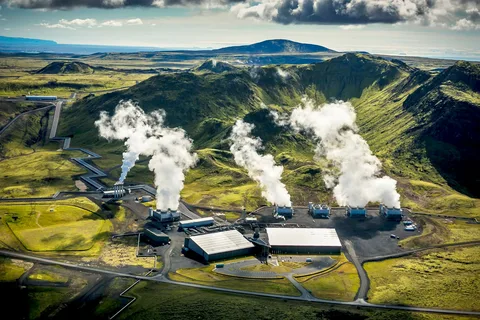A recent study conducted by researchers at Princeton University’s ZERO Lab and EGS developer Fervo Energy highlights the potential of enhanced geothermal systems (EGSs) in the decarbonization of electricity generation. EGSs are artificial or enriched reservoirs within the Earth’s subsurface that can produce geothermal energy by extracting heat. Traditionally, EGSs have been considered stable and reliable sources of electricity. However, this study suggests that these reservoirs can also store energy for longer periods, rather than converting it all at once.
The research project aimed to explore the benefits of flexible operations for both the EGS industry and decarbonized electricity grids. According to Wilson Ricks, co-author of the paper, the resurgence of EGS development and the growing need for flexibility and energy storage in power systems with high levels of wind and solar power led to this investigation.
The team utilized the GenX optimization model developed by MIT and the ZERO Lab to simulate EGS reservoirs undergoing flexible operations. GenX is an open-source electricity system planning model that predicts electricity demand, generation, and storage based on available technologies and constraints.
The study specifically focused on the impact of flexible EGS operations on geothermal power deployment in the Western United States. It aimed to determine whether these operations could reduce the costs of decarbonized electricity systems in the region. The team paid close attention to mapping the geothermal resource base, including availability at various temperatures and depths, as well as incorporating local hourly air temperature variability.
The findings of the study demonstrate the potential of geothermal power as a reliable and flexible source of decarbonized electricity. Ricks stated, “This research helps illustrate why it is essential to carefully consider the various ways in which energy storage and flexible operations can create value for enhanced geothermal systems and other carbon-free technologies in decarbonized electricity systems.”
The use of flexible EGS operations can contribute to the long-term sustainability and stability of electricity generation systems. By storing energy and converting it into electricity as needed, EGSs can be integrated into grids reliant on intermittent renewable sources such as wind and solar power. This flexibility allows for a more balanced and reliable power supply, ultimately helping to reduce carbon emissions.
The study’s findings provide valuable insights for policymakers and industry stakeholders working towards a sustainable and decarbonized future. By recognizing the potential of geothermal power and its ability to complement other renewable energy sources, stakeholders can make informed decisions on integrating EGSs into electricity grids.
In conclusion, the research emphasizes the significance of flexible operations and energy storage in harnessing the potential of geothermal power for decarbonizing electricity. By optimizing the use of EGS reservoirs and integrating them into the existing power infrastructure, it is possible to achieve a more sustainable and resilient energy system, helping to mitigate climate change and reduce reliance on fossil fuels.
*Note:
1.Source: Coherent Market Insights, Public sources, Desk research
2.We have leveraged AI tools to mine information and compile it

